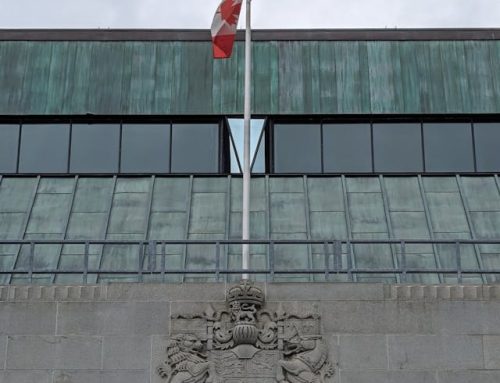Minister’s Refusal to Grant Remission Unreasonable
Mokrycke v. Canada (Attorney General) 2020 FC 1027
Summary
The Applicant applied for a remission order, which was rejected by the Minister of National Revenue (“Minister”). The Applicant sought judicial review of the Minister’s refusal. The application for judicial review was allowed.
Background
The Applicant is an architect in Hamilton, Ontario. In 2008, he was audited by the CRA in respect of his 2005 and 2006 taxation years. The CRA concluded that the Applicant was in receipt of unreported income and had many unsubstantiated business expenses. The Applicant was reassessed in 2009 in respect of the alleged unreported income and unsubstantiated expenses.
The Applicant’s accountant filed objections on time. Due to personal difficulties, the Applicant’s accountant ceased to act for the Applicant. The Applicant retained a second accountant. The second accountant failed to deliver relevant documentation by a deadline imposed by the CRA. The deadline came and went, and a Notice of Confirmation was issued by the Appeals Division. The second accountant did not act in response to the Confirmation.
The Applicant tried to act on his own behalf but was largely unsuccessful and did not appeal to the Tax Court of Canada, the next step in the process. The Applicant eventually retained his first accountant, who eventually filed a tax court appeal along with an application for an extension of time to file said appeal in 2014. That application was dismissed in 2015.
An interest relief application was filed and rejected. The Applicant eventually hired experienced tax counsel to assist with a second request for interest relief (which was refused) and a remission order.
What is a Remission Order?
A remission order is an alternative process to obtain relief. Subsection 23(2) of the Financial Administration Act gives the federal government the authority to forgive a tax debt of a taxpayer in circumstances where the collection of the tax is unreasonable, unjust or where it would not be in the public interest to do so. CRA has developed internal guidelines that identity the following factors as situations in which tax may be remitted:
- Payment of amounts owing would cause extreme hardship
- Financial setback coupled with extenuating factors
- Amount owing is an unintended result of the legislation
- Amount owing is the result of incorrect action or advice by CRA officials
In rejecting the second request for administrative relief, the CRA suggested a remission order. The remission order was requested in 2017, on the basis that the Applicant relied on tax professionals, and he experienced financial and health difficulties during the relevant time. On May 22, 2019, this request for a remission order was rejected on the basis that none of the criteria above applied to the Applicant’s situation.
The remission order request was rejected mainly because the Applicant’s allegation that the assessed amounts were incorrect could not be verified during the remission review. In other words, the review committee did not see anything in the submission that suggested the CRA made any error at the audit stage or in reassessing the years at issue. Similarly, the Applicant failed to present evidence substantiating his alleged health difficulties. Last, despite his accountants not diligently handling matters, the Minister posited it was the Applicant’s own responsibility to ensure that his tax obligations were met. Furthermore, it was suggested that the Applicant’s dispute with his accountants should be settled between those parties and that allegations of professional negligence would not be considered extenuating circumstances for the purposes of a remission order.
Decision & Analysis
Following a detailed analysis of the CRA’s Remission Guide, the Federal Court found that:
- The Guide did not explicitly address the reasonableness of relying on tax professionals.
- Factors such as a person’s financial or personal situation may warrant consideration for remission.
- The Guide does not address whether and, if so, when errors or omissions by a tax professional could constitute an extenuating circumstance.
- The criteria for applying for remission is not an exhaustive list.
A critical issue was whether the CRA advised the Applicant of the guidelines for applying for a remission order when suggesting in its letter that remission be considered. The Applicant indicated he was unaware of the guidelines and that knowledge of the guidelines would have impacted his submission.
The question became, was the decision to refuse remission reasonable? The Court answered in the affirmative. First, the Court found that it was unreasonable to reject the remission request on the basis that the information examined during the remission review “did not reveal that the CRA made any error at the audit stage or in reassessing the 2005 and 2006 tax years” when this was the very point in issue. In the Court’s view, this logical flaw undermined the internal rationality of the decision.
The Court also questioned the Minister’s position on the Applicant’s reliance on tax professionals who may have failed to adequately discharge their professional responsibilities. Namely, it is the Minister’s position that when an Applicant “engages the services of a tax professional who makes an error or omission, any delays or failures on the part of the representatives are matters to be settled between those parties and are not considered extenuating circumstances for the purpose of remission.” The Court found that it was unreasonable to treat this as an absolute rule.
What is Reasonable?
As the Guide states, to determine whether a taxpayer took reasonable steps to address an alleged error by the CRA, “the person’s personal circumstances should be considered.” One of the personal circumstances the applicant relied on was his reliance on tax professionals, who failed to discharge the responsibilities he entrusted to them. This was, according to the applicant, an extenuating circumstance that warranted remission. To the extent that the Assistant Commissioner’s reasons reveal how he considered this factor, he appears to have dismissed it as irrelevant.
Given the importance to the applicant’s request of the question of whether any errors or omissions by the tax professionals who assisted the applicant could constitute an extenuating circumstance or, more broadly, made it unreasonable or unjust to recover the 2005/2006 debt, it was essential that the Assistant Commissioner explain why he concluded that they did not. Once again, the Assistant Commissioner was not required to find the applicant’s argument convincing but, if that argument is to be rejected, the reasons given must explain why. The Assistant Commissioner’s reasons do not do this. Since the general rule that the errors or omissions of tax professionals are not considered extenuating circumstances for the purpose of remission admits of exceptions, it is insufficient to simply state the rule without also explaining why an exception should not be made in this case. The failure to give this explanation leaves the decision lacking in justification, transparency and intelligibility.[1]
The application for judicial review was allowed with costs to the Applicant.
Key Takeaway
The Federal Court found that the remission request was not made strictly in accordance with the framework found in the Remission Guide, but that that was not fatal to the request. The Court found that the grounds for the remission request did fall within the enumerated criteria, despite not explicitly requesting remission under those headings.
[1] Mokrycke v. Canada (Attorney General) 2020 FC 1027, at para. 73.



